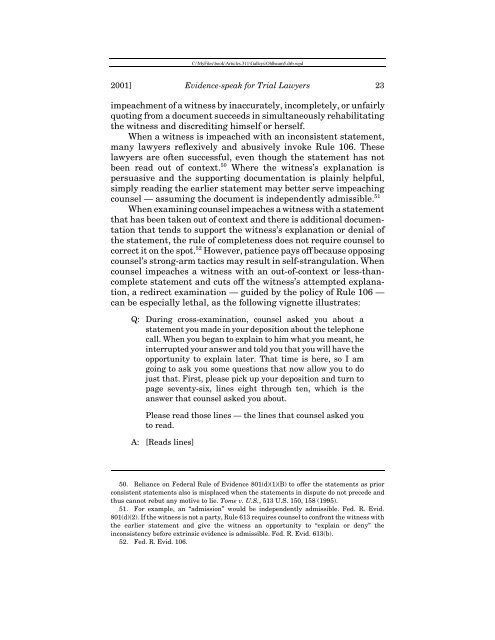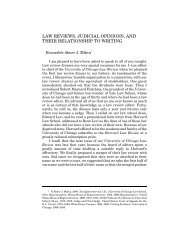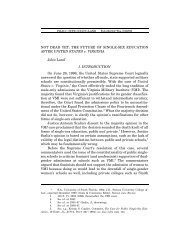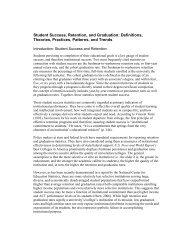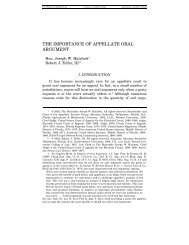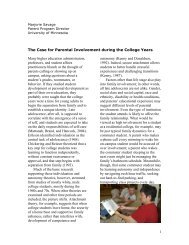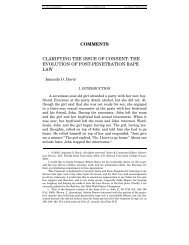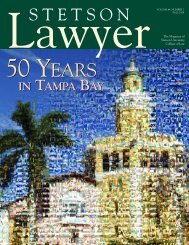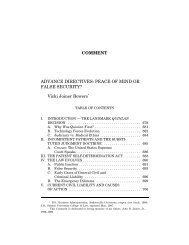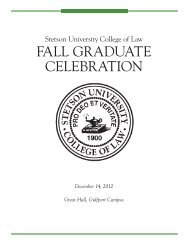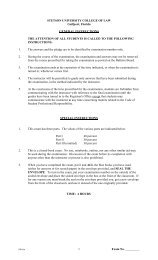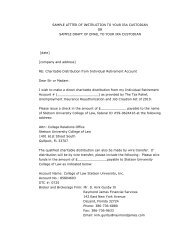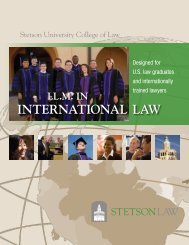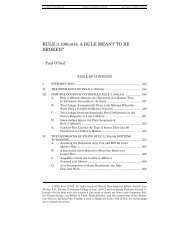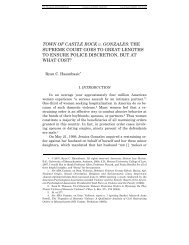Evidence-speak for Trial Lawyers - Stetson University College of Law
Evidence-speak for Trial Lawyers - Stetson University College of Law
Evidence-speak for Trial Lawyers - Stetson University College of Law
Create successful ePaper yourself
Turn your PDF publications into a flip-book with our unique Google optimized e-Paper software.
C:\MyFiles\book\Articles.311\Galleys\Ohlbaum5.drb.wpd2001] <strong>Evidence</strong>-<strong>speak</strong> <strong>for</strong> <strong>Trial</strong> <strong><strong>Law</strong>yers</strong> 23impeachment <strong>of</strong> a witness by inaccurately, incompletely, or unfairlyquoting from a document succeeds in simultaneously rehabilitatingthe witness and discrediting himself or herself.When a witness is impeached with an inconsistent statement,many lawyers reflexively and abusively invoke Rule 106. Theselawyers are <strong>of</strong>ten successful, even though the statement has notbeen read out <strong>of</strong> context. 50 Where the witness’s explanation ispersuasive and the supporting documentation is plainly helpful,simply reading the earlier statement may better serve impeachingcounsel — assuming the document is independently admissible. 51When examining counsel impeaches a witness with a statementthat has been taken out <strong>of</strong> context and there is additional documentationthat tends to support the witness’s explanation or denial <strong>of</strong>the statement, the rule <strong>of</strong> completeness does not require counsel tocorrect it on the spot. 52 However, patience pays <strong>of</strong>f because opposingcounsel’s strong-arm tactics may result in self-strangulation. Whencounsel impeaches a witness with an out-<strong>of</strong>-context or less-thancompletestatement and cuts <strong>of</strong>f the witness’s attempted explanation,a redirect examination — guided by the policy <strong>of</strong> Rule 106 —can be especially lethal, as the following vignette illustrates:Q: During cross-examination, counsel asked you about astatement you made in your deposition about the telephonecall. When you began to explain to him what you meant, heinterrupted your answer and told you that you will have theopportunity to explain later. That time is here, so I amgoing to ask you some questions that now allow you to dojust that. First, please pick up your deposition and turn topage seventy-six, lines eight through ten, which is theanswer that counsel asked you about.Please read those lines — the lines that counsel asked youto read.A: [Reads lines]50. Reliance on Federal Rule <strong>of</strong> <strong>Evidence</strong> 801(d)(1)(B) to <strong>of</strong>fer the statements as priorconsistent statements also is misplaced when the statements in dispute do not precede andthus cannot rebut any motive to lie. Tome v. U.S., 513 U.S. 150, 158 (1995).51. For example, an “admission” would be independently admissible. Fed. R. Evid.801(d)(2). If the witness is not a party, Rule 613 requires counsel to confront the witness withthe earlier statement and give the witness an opportunity to “explain or deny” theinconsistency be<strong>for</strong>e extrinsic evidence is admissible. Fed. R. Evid. 613(b).52. Fed. R. Evid. 106.


